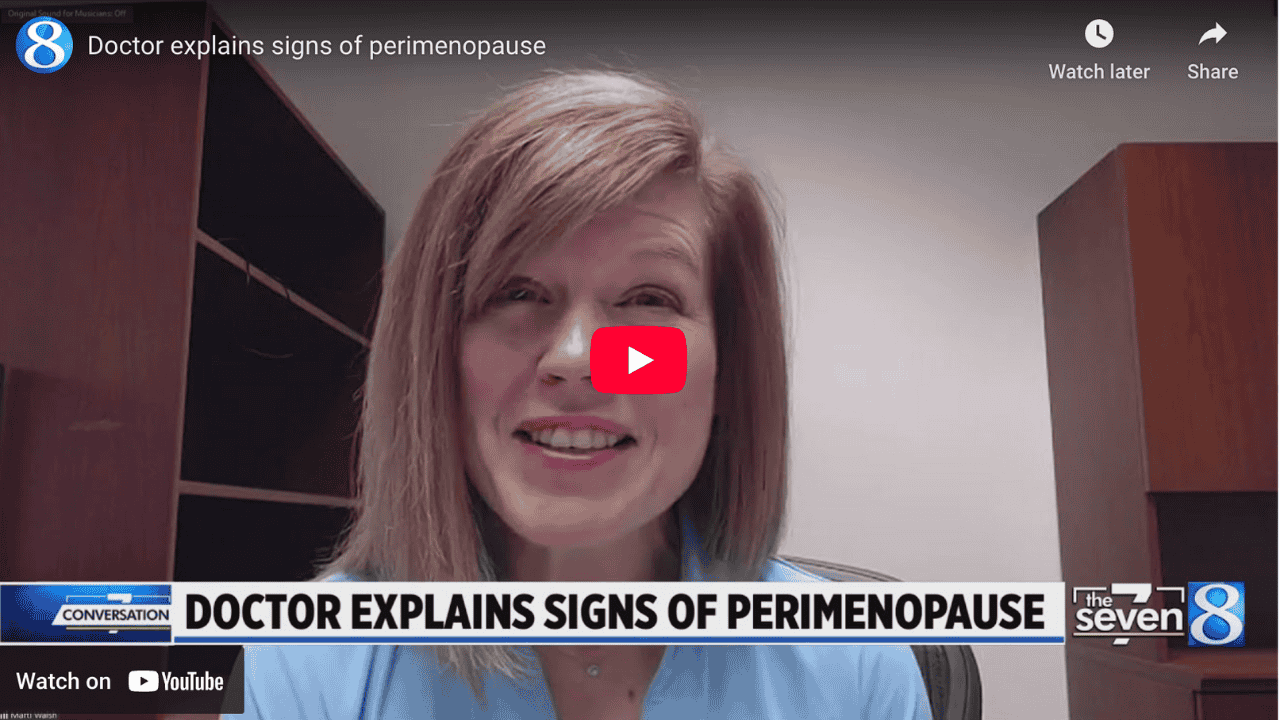Feeling “Off”? A Perimenopause Therapist Can Help with Mood, Anxiety, and More
Something Feels Off. Is It Perimenopause?
You wake up tired, even after sleeping. You snap at people you love. You feel anxious, sad, or not like yourself at all. Maybe your body feels different too. You might be having hot flashes, night sweats, or periods that come and go like they have a mind of their own. You might also notice brain fog, forgetfulness, or trouble focusing—like your mind isn’t as sharp as it used to be.
You’re not going crazy. You might be going through perimenopause—the transition leading up to menopause. And for many women, this time can bring real mental health issues.
You don’t have to figure this out alone. Let’s talk about what’s going on and how working with a perimenopause CBT therapist can help.
Signs of Perimenopause
Perimenopause often starts in your 40s (sometimes late 30s) and can last several years. The hormones that help keep your mood, energy, and body steady start to shift. Some signs are physical. Others are emotional or mental.
Here are some common signs:
Mood swings
Anxiety or panic attacks
Low mood or depression
Trouble sleeping
Brain fog or forgetfulness
Anger or irritability
Irregular or heavy periods
Hot flashes and night sweats
Low sex drive
It’s not “just stress” or “just getting older.” These changes are real, and they deserve care.
Doctor Explains Perimenopause (source: Wood TV8)
Take a Quick Perimenopause Screener
Not sure if what you're feeling is perimenopause?
👉 Take this short perimenopause quiz to see if your symptoms could be related.
(This screener won’t diagnose you, but it can help you start the conversation.)
Diagnosing Perimenopause
There’s no one-size-fits-all test for perimenopause. A doctor may check your hormone levels using a blood test. But often, a diagnosis is based on your symptoms and how they affect your life.
If you’re struggling with mood, anxiety, or other emotional changes, you don’t have to wait for lab results to start getting help. That’s where a perimenopause therapist comes in.
Frequently Asked Questions (FAQ): Perimenopause
What Age Does Perimenopause Start?
Most people start perimenopause in their 40s, but for some, it can begin in their late 30s. It doesn’t start or feel the same for everyone. You might notice subtle changes—your period shifts, your sleep isn’t as deep, or your moods feel harder to manage. These early signs often show up before you even think about menopause.
What’s the Difference Between Perimenopause and Menopause?
Perimenopause is the transition phase leading up to menopause. Your hormones (mainly estrogen and progesterone) rise and fall in unpredictable ways. This causes symptoms like mood swings, hot flashes, or brain fog.
Menopause means you’ve gone 12 full months without a period. After that, you’re in the postmenopausal stage. But many of the hardest symptoms actually happen during perimenopause—and they can last for several years.
Can Perimenopause Cause Anxiety and Depression?
Yes, it absolutely can. Hormone changes can affect how your brain processes stress, sleep, and emotions. That’s why many women feel more anxious, sad, or emotionally sensitive during this time (even if they’ve never struggled with their mental health before).
You’re not imagining it. These shifts are real, and therapy (especially CBT) can help you feel more stable and in control.
Do I Need Hormone Therapy or Antidepressants?
Some people do well with hormone replacement therapy (HRT) or antidepressants, especially if symptoms are intense or affecting daily life. Medication can work with therapy—not instead of it.
But not everyone needs medication. Many women feel better with therapy alone, especially CBT or ACT. Many women will also need sleep support, gentle movement, and stress management. A good therapist or doctor can help you sort through your options.
How Long Do Perimenopause Symptoms Last?
Perimenopause usually lasts 4 to 10 years. For some, it’s short and barely noticeable. For others, it can feel like a long rollercoaster of ups and downs.
The good news? The hardest parts usually come in waves—not all at once. And you don’t have to wait until it’s “over” to feel better. Therapy can help you manage the emotional ups and downs now.
Treatment for Perimenopause
Treatment can include medical care, lifestyle changes, and therapy. If your mental health feels shaky, therapy is a great place to start.
Here’s how therapy can help:
CBT (Cognitive Behavioural Therapy)
CBT helps you notice unhelpful thoughts and shift them. During perimenopause, your brain might tell you things like: “I can’t cope.” “I’m losing it.” “I’m not myself.” CBT helps you catch these thoughts and build new ones that support your confidence and calm.
ACT (Acceptance and Commitment Therapy)
ACT helps you accept what you can’t control and stay grounded in your values. Maybe your body is changing, but your strength, kindness, and purpose are still there. ACT helps you reconnect with that.
5 Simple Tips to Support Your Mental Health During Perimenopause
Track your symptoms. Write down how you feel each day. Patterns can help you and your therapist understand what’s happening.
Cut back on alcohol and caffeine. They can make anxiety and hot flashes worse.
Move your body. Even short walks can improve your mood and sleep.
Rest when you need to. Fatigue isn’t laziness. It’s your body asking for care.
Talk to someone. You don’t have to go through this alone.
Natural Remedies for Perimenopause Symptoms
Small, consistent habits can make a big difference:
Keep a regular sleep schedule
Move your body daily (even stretching or short walks)
Eat balanced meals—especially protein and healthy fats
Cut back on alcohol and caffeine
Try guided meditation or breathing exercises
While supplements and herbs (like black cohosh or magnesium) help some people, talk to your doctor first to make sure they’re safe for you.
Daily Life in Perimenopause: What Helps?
Here are a few therapist-approved tips to make day-to-day life feel more manageable:
Give your brain breaks. When you feel foggy, step away from multitasking and reset.
Set small goals. Energy comes and goes. Focus on one thing at a time.
Talk to your people. Let family or coworkers know what you need—like space, help, or quiet.
Be kind to yourself. You’re not lazy or losing it. You’re adjusting to big changes.
Book therapy if you're struggling. This isn’t just “part of being a woman.” You deserve real support.
Ready to Feel More Like You Again?
If perimenopause has you feeling anxious, overwhelmed, or just “off,” therapy can help you find your footing again. You deserve support that’s built for this exact season of life.
Our team of caring therapists at Virtual CBT understands how hormone changes can affect your mood and mind. We offer online therapy across Ontario, including help for perimenopause, CBT, and other mental health issues.
👉 Book a free consultation to talk with a perimenopause therapist today. Let’s help you feel grounded, clear, and strong—no matter what your hormones are doing.
Written by Celissa Vipond, RSW, MSW Psychotherapist in Ontario



